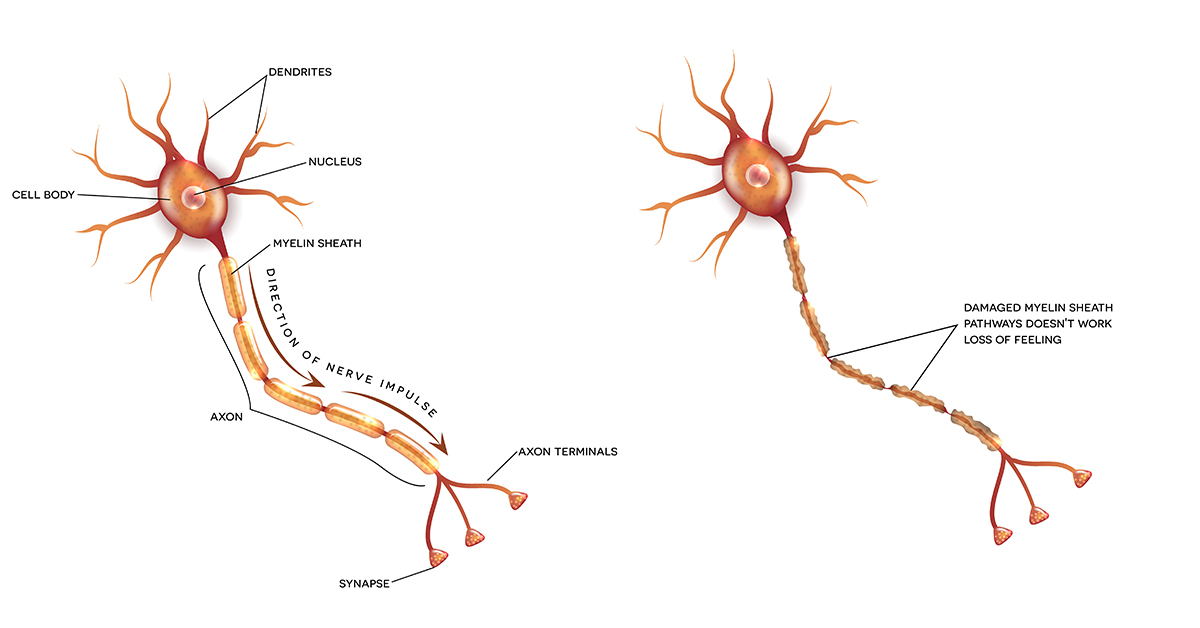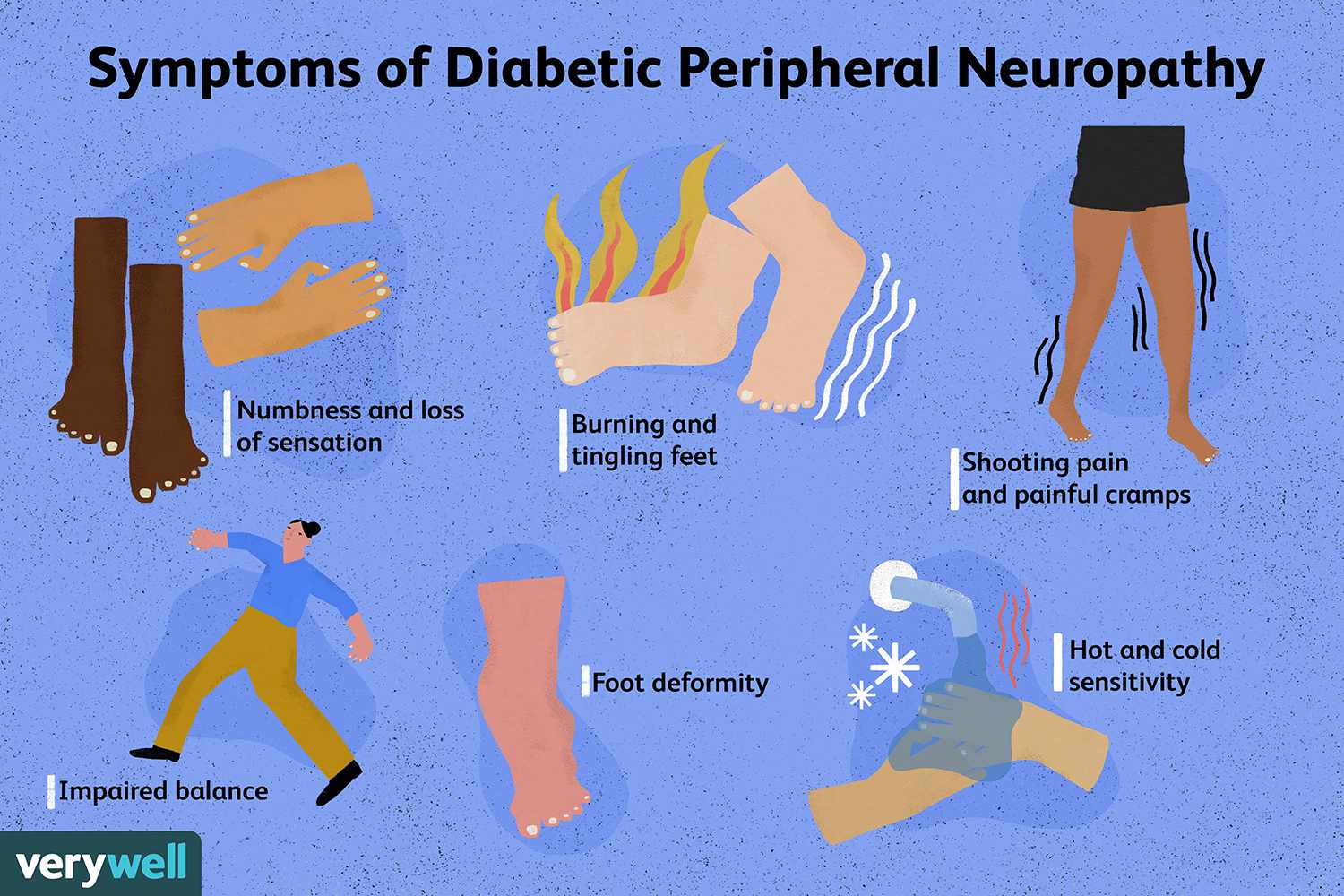Peripheral Neuropathy
Peripheral neuropathy refers to a condition resulting from damage to the peripheral nerves—the nerves outside the brain and spinal cord. These nerves carry messages between the central nervous system and the rest of the body, including the arms, legs, and organs. When they are damaged, communication is disrupted, leading to a variety of symptoms.
Treatment for peripheral neuropathy focuses on managing the underlying cause (such as diabetes or vitamin deficiencies), relieving symptoms, and preventing further nerve damage. Common approaches include medications like pain relievers, antidepressants, or anti-seizure drugs, physical therapy to improve strength and coordination, and lifestyle changes such as better glucose control or avoiding alcohol. In some cases, topical treatments or nerve stimulation therapies may also be used. Early diagnosis and intervention are key to better outcomes.

The most common symptoms of peripheral neuropathy include numbness, tingling, burning sensations, muscle weakness, and sharp or stabbing pain, usually beginning in the hands or feet. Some people may also experience issues with coordination or balance. In severe cases, it can lead to muscle wasting or paralysis.
There are many potential causes of peripheral neuropathy. Diabetes is the leading cause, as consistently high blood sugar can damage nerves over time. Other causes include physical injury, infections, autoimmune diseases, exposure to toxins, certain medications (like chemotherapy drugs), and vitamin deficiencies—especially B vitamins.

Diagnosing peripheral neuropathy involves a combination of medical history, physical exams, blood tests, and sometimes nerve conduction studies or electromyography (EMG) to assess nerve and muscle function.
Treatment depends on the underlying cause. For example, managing blood sugar in diabetics can slow progression. Other treatments focus on symptom relief, such as pain medications, antidepressants, anticonvulsants, and physical therapy. Lifestyle changes, like a healthy diet, regular exercise, and avoiding alcohol, can also help.
While peripheral neuropathy can be a lifelong condition, early detection and management significantly improve quality of life. It’s important to seek medical advice if you notice any symptoms, especially if you have risk factors like diabetes or alcohol dependence.
